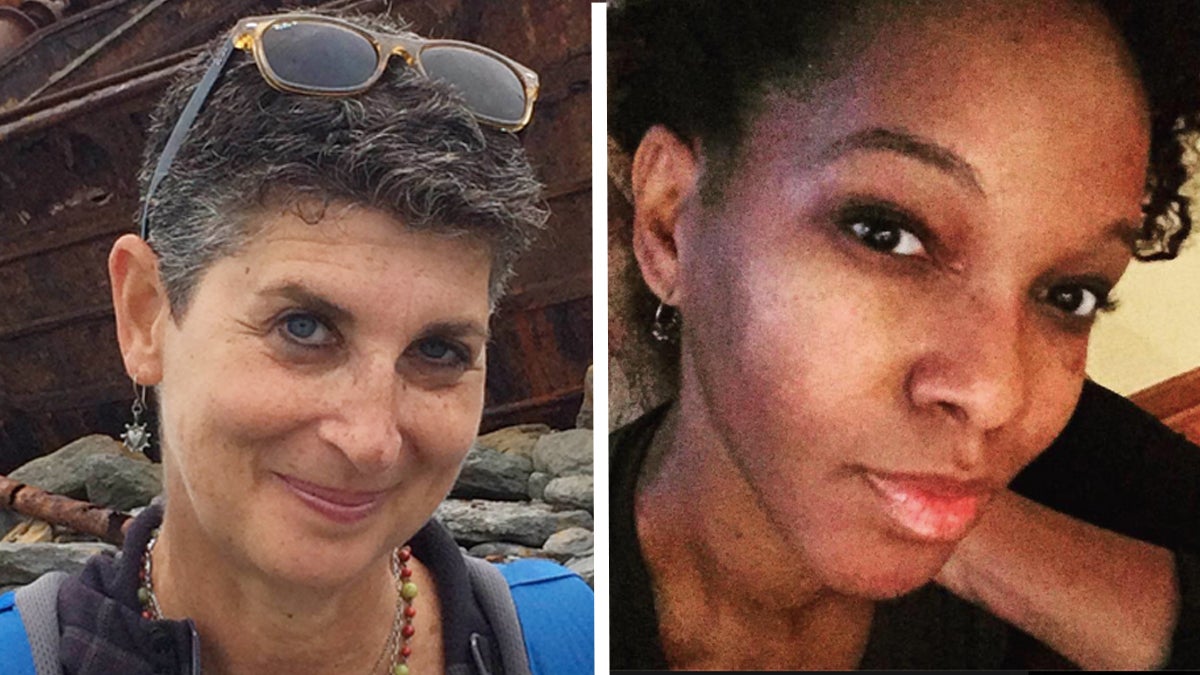White professor says Princeton cops treated her ‘really nice’ for same violation as Imani Perry

Professor Janice Fine (left), Professor Imani Perry (right)
When Rutgers University Professor Janice Fine made a illegal U-turn on Princeton’s Nassau Street in January 2010, she was pulled over by the police. She expected to get a traffic ticket.
She and her son waited in their car for the police officers to return. It took a really long time. What she didn’t know was the cops were learning that she had a suspended driver’s license and an arrest warrant for an unpaid parking ticket.
If this case sounds familiar, it’s because the circumstances are strikingly similar to those of Imani Perry, a Princeton professor arrested on Saturday, but who alleges she was mistreated.
The only real difference Fine sees between her case and Perry’s is race. Fine is a white woman and Professor Perry is a black woman.
As Fine recalls the experience, the police seemed to go out of their way to be helpful, even though she was being arrested.
The policewoman said she did not want to frighten her or her son, recalled Fine. She doesn’t remember being patted down by either police officer. The police drove Fine and her son to his school where they dropped him off. Then they took her down to the Princeton police station.
“As we’re driving, she says ‘I’m really supposed to cuff you, but I’m not going to do that unless my chief sees me,’” Fine recalled of her conversation with the policewoman. A male officer was present at her arrest but did not accompany her to the station. Both officers were white.
“They were really nice to me and never cuffed me,” Fine said. “It was like they were slightly embarrassed.”
Fine said that the police recorded her fingerprints and that she had to pay between $100 and $150. An officer then advised her to drive to Trenton — without a license — to have a new one issued, Fine said.
“The officer looked at me and said ‘I don’t think you’ll get pulled over from here to Trenton,’” Fine recalled.
Fine said she would have been “terrified” if someone had handcuffed her, and that she “definitely would have felt mistreated.”
Fine said she was “treated entirely differently” from Perry, who complained on social media that she was patted down by a male police officer and later handcuffed to a table.
Perry wrote in a statement on Facebook, “The police treated me inappropriately and disproportionately. The fact of my blackness is not incidental to this matter.” Perry is a professor of African-American studies at Princeton University and previously taught at Rutgers Camden.
After conducting a preliminary investigation, Princeton Police Chief Nicholas Sutter said that Perry’s arrest upheld policy. The Mercer County Prosecutor’s Office is further investigating the case.
After reviewing the dashcam footage of Perry’s arrest, Christopher Wagner, president of the New Jersey State Association of Police Chiefs, said the officers appeared to act “completely appropriately” during the roadside incident.
“One of the most dangerous times for us as police officers is when we say to someone ‘You’re under arrest.’ From that moment, until the moment that the person is released from our custody, is a very dangerous time for us,” said Wagner, also the chief of the Denville Police Department. “So we limit a tremendous amount of actions that occur in that short period of time.”
Wagner said the same logic applies to refusing a suspect a phone call before the arrest as well as handcuffing a suspect back at a police station, two other complaints Perry lodged as excessive.
Sutter in an interview with NewsWorks said Fine’s arrest in 2010 occurred under a different police department. In 2013 the police departments of Princeton Borough and Princeton Township were merged.
Sutter said that, since he was not there at the time of the arrest, he could only make suppositions that might have accounted for the different treatment of the two professors. He said Fine had a child with her and that might have called for different procedures like not handcuffing the parent in front of the child.
“I will not be able to answer to every single claim,” Sutter said.
Fine acknowledges that having her son with her makes situation different from Perry’s but that doesn’t discount Perry’s claim, “Sure, I had my kid with me, but I was also a white mom,” she said.
Fine says she supports Perry raising the issue of possible racial bias during her arrest and called her actions courageous. “She has a lot to lose as a professor,” Fine said. “When you speak out and you talk about race and you’re black, everybody treats you like you’re a sore loser.”
Fine is an associate professor of labor studies and employment relations at Rutgers University’s School of Management and Labor Relations. She said that the majority of her students are immigrants, African-Americans or Latinos.
“If you don’t understand that there’s disparate treatment of minorities you’re not paying attention,” Fine said, noting that Princeton has a huge racial disparity and income gap.
Fine said she hopes that her case will help raise awareness of the procedural differences between her case and Perry’s.
“We all have these cultural assumptions that we make, but we’re not all police.”
******
Below is dashcam video released yesterday of Imani Perry’s traffic stop on Saturday, February 6, 2016 on Mercer Road at the Princeton Battlefield.
*******
Joe Hernandez contributed to this report
WHYY is your source for fact-based, in-depth journalism and information. As a nonprofit organization, we rely on financial support from readers like you. Please give today.




